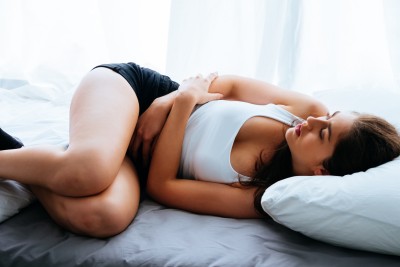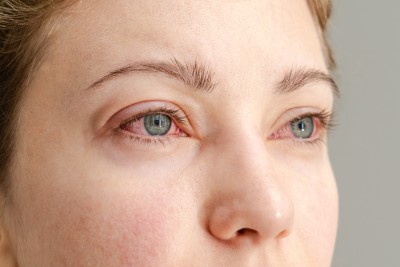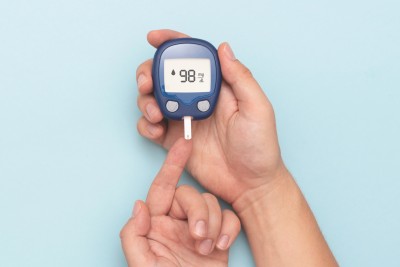Free shipping for orders over 39.00€
How not to let constipation rule your life!

One of the most awkward situations we can experience is constipation, a condition that can complicate our routine and affect the quality of our life. Constipation is a problem faced by 16% of the adult population and troubles 33% of the elderly and 70% of women.
Furthermore, almost ¼ of people suffering from constipation do nothing to relieve the symptoms, hoping that bowel discomfort will pass without medical help. Fortunately, the problem is treated in a relatively simple way, if we overcome the embarrassment and phobia caused by the need to address our problem to an expert, to be relieved.
What are the symptoms?
To be considered constipated, you need to have less than three defecations per week. But how can we evaluate the symptoms and tell if it is a transient problem or something more serious that needs medical advice? Scientists suggest that, if we are over 40 years old and observe the following symptoms for more than three weeks, we should visit the doctor to help us return to our daily routine.
Specifically, if we:
- Observe hard stools
- Face difficulty emptying and abdominal pain
- Feel incomplete emptying
- Have 1-2 stools per week
- Feel like of anorectal obstruction
- Have feverishness
- Experience weakness
- Observe weight loss\
- Bleed during or after emptying,
It is advisable to seek the help of a doctor.
What are the causes of constipation?
Constipation is not considered to be a disease but a symptom, which is why its appearance is related either to our lifestyle and diet or due to some diseases that afflict the body.
Some of the most common causes are:
◽Poor nutrition, not rich in fiber, fruits, vegetables, and legumes.
◽Reduced physical activity and sedentary lifestyle.
◽Reduced fluid intake and dehydration.
◽The sharp weight loss.
◽Stress.
◽A change in our daily habits (i.e., a trip, a change of environment, a slimming diet).
◽Hormonal changes during pregnancy or menopause.
◽The irritable bowel syndrome.
◽The use of drugs that cause – as a side effect -constipation, such as iron supplements, antidepressants, and some antihypertensives.
◽Chronic use of laxatives, affecting the functioning of the intestine, which connects its motility with its reception.
◽Various pathological causes, such as neurological and psychological disorders (Parkinson's disease, depression, multiple sclerosis, etc.), various systemic diseases (diabetes mellitus, hyperthyroidism, etc.) as well as various anatomical or functional disorders.
If constipation is chronic, it can be associated with the appearance of hemorrhoids, rectal prolapse, ring stretch marks, colon cancer, diverticula, etc.
How can we treat constipation?
Constipation can be treated, once it is identified - usually with the help of the gastroenterologist - the reason that causes it. However, there are some changes in our daily habits that can strengthen prevention and relieve symptoms.
As in almost all cases, it is of high importance – so as to improve our health condition - to change our lifestyle orientation and focus to healthy eating and exercise. We need to:
✔️Follow a diet rich in fiber, which increases intestinal motility and improves the passage of feces. We should include 20-30 grams in our daily diet - a quantity that covers the daily needs of the body in fiber – by consuming bread, whole-wheat pasta, legumes, and of course, cereals like those that are widely marketed.
Include in our nutrition many salads (spinach, broccoli, lettuce, cabbage etc.) and fruits (orange, apple, kiwi).

✔️Use food supplements with psyllium or senna or macrogol.
Psyllium helps to change and balance the microflora of the intestine, and due to its high-water absorbency, it makes the stools softer so that they are excreted more easily.
Furthermore, Senna is used for constipation and detoxification of the liver and is known for its bactericidal and fungicidal action.
Finally, macrogol acts as a mild laxative, which increases stool volume and stimulates intestinal motility, facilitating emptying.
✔️Drink more than 2 liters of fluids per day, as these soften the contents of the intestine and help the fiber to act. Do not focus only on water: fearlessly drink fruit juices, teas and soups and prefer mineral water, which contains magnesium and has a mild laxative effect.
✔️Work out. Walking or gymnastics promote good bowel function. Even if a routine of exercises 3-4 times per week is not possible, small walks or simple exercises help the motility of the muscles of the intestine.
✔️Take care of the proper functioning of the intestinal flora, by consuming products rich in probiotics (yogurt, sour milk, kefir, dark chocolate).
✔️Build "friendly" habits by educating the body and listening to its needs. Try to teach yourself to go to the toilet at the same time every day, do not be oppressed when you feel the need for the toilet and, in general, observe what your body asks and respect it reverently.






